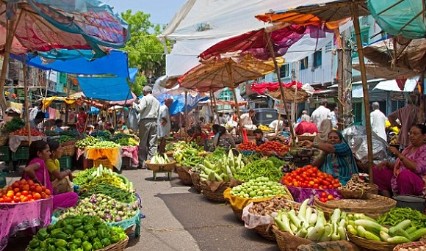The Reserve Bank of India or RBI has upheld its inflation projection for the fiscal year 2024-25 at 4.5 per cent, despite ongoing challenges related to food prices and geopolitical factors potentially affecting crude oil prices.
RBI Governor Shaktikanta Das shed light on the importance of vigilance to mitigate the effects of persistent food inflation and maintain the credibility of monetary policy. The central bank has projected quarterly inflation rates for FY25 as follows: 4.4 per cent for the second quarter, 4.7 per cent for the third quarter, and 4.3 per cent for the fourth quarter.
This is a slight adjustment from earlier forecasts made in June, which were 3.8 per cent, 4.6 per cent, and 4.5 per cent for the respective quarters. Inflation was recorded at 4.9 per cent for the first quarter of FY25.
The RBI has also forecasted a 4.4 per cent inflation rate for the first quarter of the next fiscal year. Das noted that while the Monetary Policy Committee-MPC might overlook temporary food price spikes, sustained inflation requires a more serious response.
Nuvama Institutional Equities Executive Director-Research Kapil Gupta commented that the RBI’s policy stance remained consistent, with no changes in rates or overall approach. He highlighted that while core inflation remains low, persistent food inflation poses risks of secondary effects. Therefore, policymakers are cautious and not eager to reduce their vigilance.
The MPC, with a four-to-two majority, decided to maintain the repo rate at 6.5 per cent for the ninth consecutive meeting. This decision comes amidst speculation that the Federal Reserve might cut rates in September due to weak job data, raising concerns about a possible recession in the US.
However, Das reiterated the RBI’s approach of focusing on domestic factors and not simply mirroring international policy moves.
Besides, Das pointed out that while Bharat’s economic growth remains strong and core inflation is at historic lows, potential reversals in fuel group disinflation could affect inflation in the coming quarters. The persistent high food prices, particularly for key vegetables like onions, tomatoes, and potatoes, have been significant. A recent Crisil analysis revealed a 11 per cent increase in the cost of a vegetarian thali in July.
Economist Anitha Rangan from Equirus asserted that the RBI cannot afford to disregard food inflation due to its persistent nature and impact on household inflation expectations. High food inflation could lead to broader economic effects, including impacts on wages and cost of living, potentially causing overall inflation to become more entrenched.
Overall, the RBI’s stance reflects a cautious approach to managing inflation, with a focus on both current challenges and long-term stability.

















